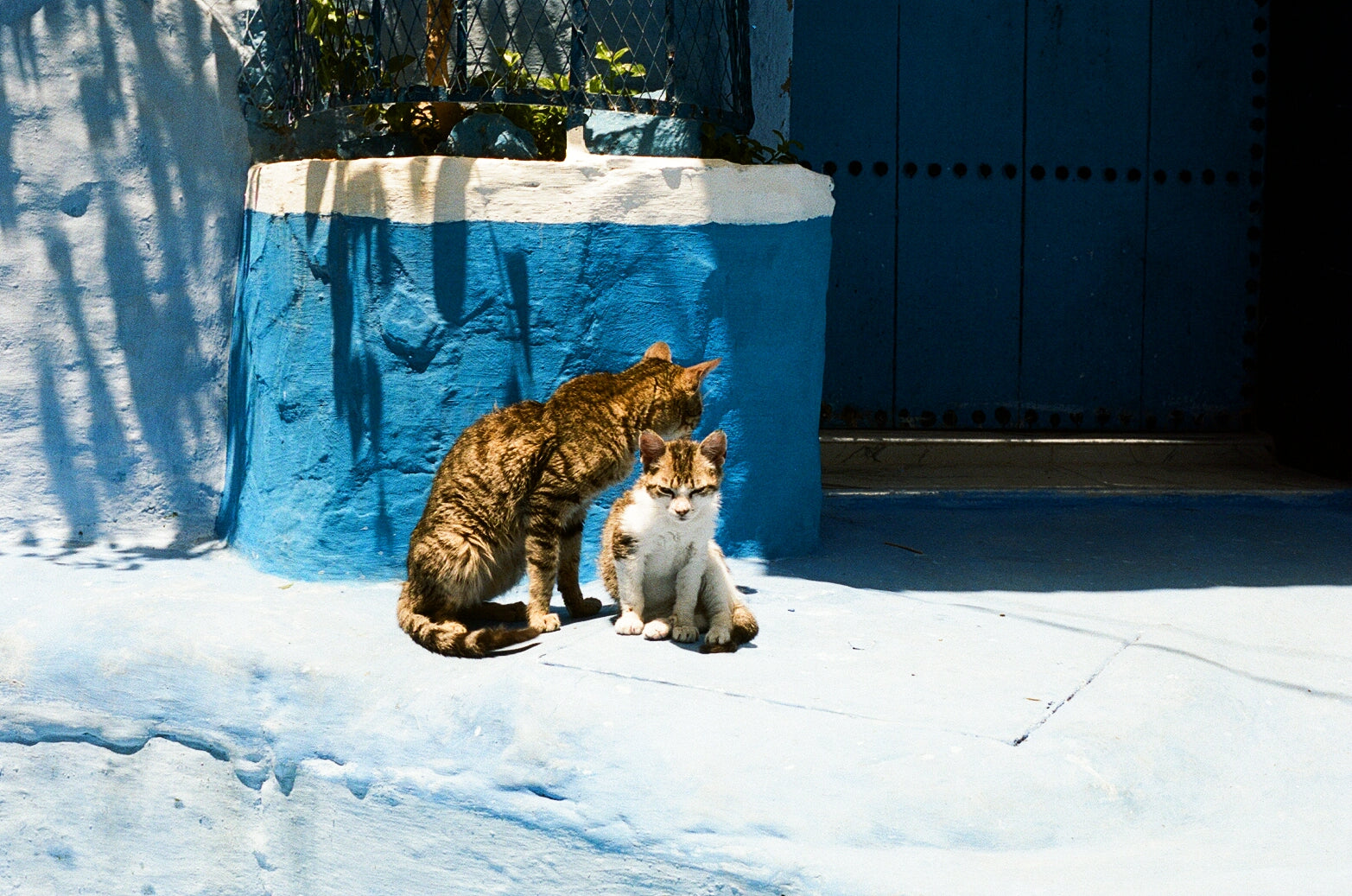One of the aspects I cherish most about film photography is how it naturally incorporates the principles of free, prior, and informed consent (FPIC). The time required to set up each shot provides an opportunity for the subject to reflect, understand the intent behind the photograph, and give their full consent. This deliberate process ensures that the subject feels respected and valued, creating an atmosphere of trust and openness. Unlike the often rushed and impersonal nature of digital photography, film photography’s slower pace allows for a more ethical and considerate interaction. This approach not only leads to more authentic and powerful images but also upholds the dignity and autonomy of the subjects, making the art of film photography a truly enriching experience for all involved.

Cats, Chefchaouen, and Consent
By Sumana Palle
One of the aspects I cherish most about film photography is how it naturally incorporates the principles of free, prior, and informed consent (FPIC). The time required to set up each shot provides an opportunity for the subject to reflect, understand the intent behind the photograph, and give their full consent. This deliberate process ensures that the subject feels respected and valued, creating an atmosphere of trust and openness. Unlike the often rushed and impersonal nature of digital photography, film photography’s slower pace allows for a more ethical and considerate interaction. This approach not only leads to more authentic and powerful images but also upholds the dignity and autonomy of the subjects, making the art of film photography a truly enriching experience for all involved.